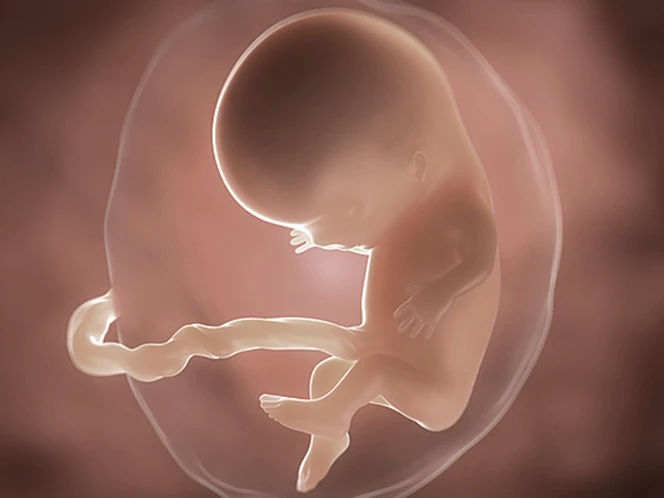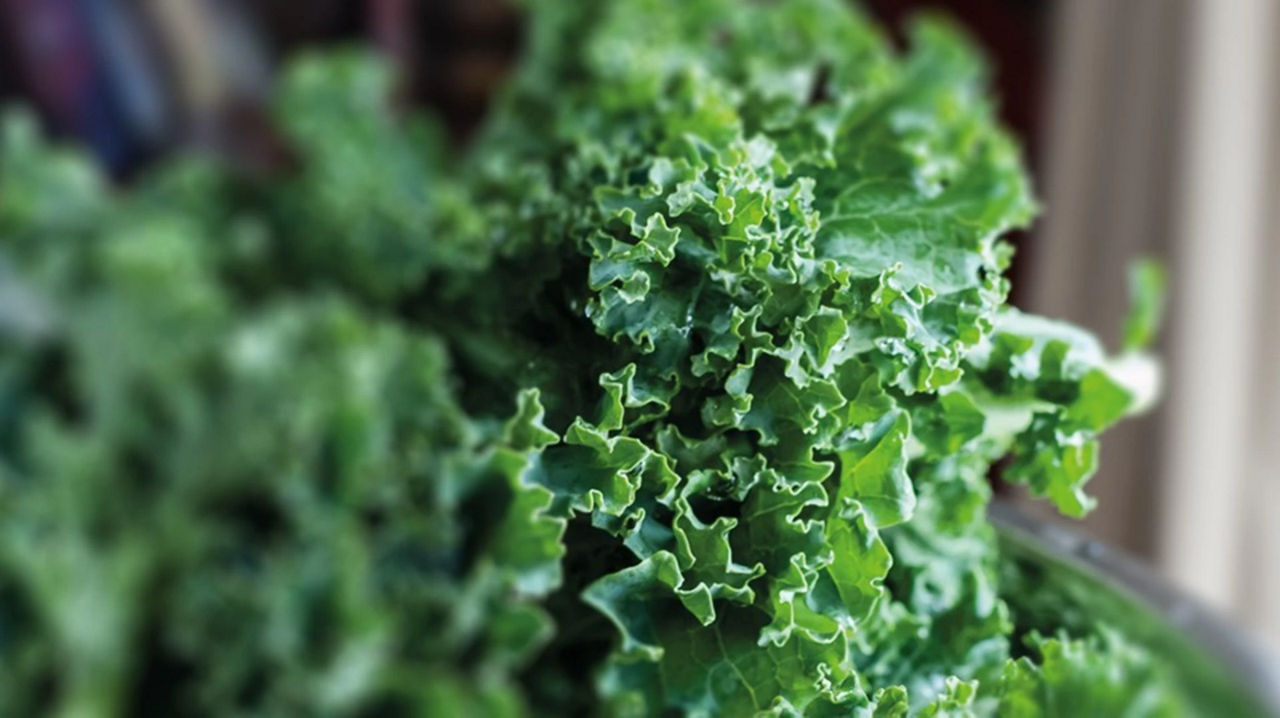At 10 weeks pregnant, some exciting developments are taking place, from your baby's emerging facial features to their internal organs.
10 weeks pregnant: pregnancy symptoms and your baby’s development

Explore pregnancy stages week by week
By now, it’s likely that you’ll have had your booking appointment with your midwife and be more in the know about what your antenatal care will look like.
As you approach your second trimester, you may find that some of the early symptoms of pregnancy will start to ease off, leaving you feeling more energetic1. Here we’re looking at some of the symptoms you might be experiencing at 10 weeks pregnant, how your baby is developing, and the importance of iron for a healthy pregnancy diet.

How big is my baby at 10 weeks pregnant, and what do they look like?
Your baby is now around 30 mm long - about the size of a small apricot1.
Whilst your baby’s head is still out of proportion to the rest of their body, their tiny face is really starting to take shape. There’s an upper lip on their mouth, and their nose has nostrils. Little ears are starting to form, and inside their head are the beginnings of the ear canals2. Your baby’s eyes are now more defined, and whilst they’re still partially closed, they can respond to light1.
At 10 weeks gestation, your baby’s heart is fully formed and beating away at 180 beats a minute2.
Even though you’re only just coming to the end of the first trimester, your baby has rapidly developing jaw bones that already contain every one of your baby’s milk teeth2.
If you were to go for a 10-week ultrasound, you’d be able to see your baby moving around and making small jerky movements2.
Getting ready for your first ultrasound? Take a look at everything you need to know.
Pregnancy at 10 weeks (first trimester): what changes are happening in your body?
If this is your first baby, you’re unlikely to develop a bump or look pregnant to the outside world until around week 12 of your pregnancy. If you’ve already had children, you may be starting to show now. This is because the muscles in your uterus will have stretched from a previous pregnancy3.
During your booking appointment (which usually takes place before you’re 10 weeks pregnant)4, your midwife may discuss any vaccinations or tests you’ll be offered while pregnant, such as the flu and whooping cough vaccines2.
Your midwife will also ask if they can take your height, weight and blood pressure measurements, and give you a blood test to determine your blood type and rule out any underlying conditions such as HIV or hepatitis4.
10 weeks pregnant: signs and symptoms
If you’re yet to experience any pregnancy symptoms, that’s not uncommon. Some women experience the whole range of pregnancy symptoms, while others don’t experience any at all. As long as your midwife or healthcare provider is happy with how your pregnancy is progressing, there’s no reason for concern.
There are several first-trimester symptoms you might be experiencing at 10 weeks pregnant from feeling tired, to heartburn and an increase in vaginal discharge. Let’s take a look.
As pregnancy hormones travel around your body, you may experience some tenderness or soreness in your breasts. They may also look bigger and have visible veins, whilst your nipples may be darker in colour and stand out more5.
One of the common first-trimester symptoms is that you may feel tired and exhausted6. Many women have more energy as they enter their second trimester, especially as many early pregnancy symptoms ease1.
Try to take it easy as much as possible, eat a healthy and balanced diet, and rest when you have the opportunity.
Around 8 in 10 women experience nausea, vomiting, or both during their pregnancy7. Also known as morning sickness, these symptoms can occur at any time during the day or night, and can in some cases significantly affect your daily life.
If you’re experiencing morning sickness, you’ll be glad to know that it’s unlikely to harm your growing baby8 and that, in most cases, it will subside between weeks 16 and 20 of your pregnancy9.
Dealing with nausea
Here are some of our top tips for dealing with morning sickness9:
- Eat smaller meals more frequently. Avoid foods that are high in fat - stick to plainer carbohydrates like crackers, bread, and pasta.
- Try to eat something first thing in the morning - dry toast or a plain biscuit are good options.
- Foods containing ginger could help - try ginger tea or biscuits.
- Avoid foods and smells that make you nauseous.
- Drink plenty of water during your pregnancy - hydration is important. Try taking small, regular sips.
- Rest as often as you can.
- Acupressure. Some women find that using a band on their forearm or applying pressure to their wrist can help ease symptoms.
Bloating in early pregnancy is a common symptom. It’s the result of the pregnancy hormone progesterone being hard at work, relaxing the muscles in your uterus so that it can stretch to support your growing baby. As it does so, progesterone also relaxes the muscles in your digestive system at the same time, which is why you may feel bloated and full of excess wind1.
To ease the symptoms of bloating in early pregnancy, you could try1:
- Eating little and often - eating around 6 smaller meals each day rather than 3 larger ones.
- Avoid eating late at night.
- Eating and drinking slowly.
- Avoiding smoking and spicy foods.
- Take a short stroll after eating if you feel up to it.
These hormonal changes can also lead to heartburn. Also known as acid reflux, heartburn is very common in pregnancy and can get worse as your baby starts to press against your stomach. Although heartburn is usually more common after 12 weeks, you may find that it begins as you come to the end of the first trimester10.
Whilst light spotting or bleeding is a common first-trimester symptom, it’s important to seek advice from a healthcare professional if you experience any bleeding at all during your pregnancy, to ensure that everything is progressing as it should.
Cramps in week 10 of pregnancy are another common symptom that you may experience. This could be the result of11:
- Constipation.
- Trapped wind.
- The ligaments in your body stretching and changing to accommodate your growing baby.
If the cramps increase in frequency and severity, or are accompanied by bleeding or unusual vaginal discharge, always seek advice from a healthcare professional11.
The bigger your baby gets, the more pressure they’ll put on your bladder. As a result, you may find that you need to go for a wee more often than you usually would. Whilst this might be slightly annoying, continue drinking plenty of fluids, as staying hydrated during your pregnancy is important.
If you notice that your moods and emotions are up and down, then it’s likely all down to the hormonal changes in your body. As you come to the end of the first trimester, the levels of progesterone and oestrogen are increasing, which can result in mood swings12.
Always seek advice from your doctor, midwife or other healthcare professional if you’re worried about how you’re feeling. Pregnancy is a big life change. It’s not unusual to feel a little anxious, so don’t hesitate to lean on those around you for support.
At 10 weeks pregnant, it’s very common to notice an increase in vaginal discharge, as this helps to prevent infections from travelling to your uterus13. If the vaginal discharge doesn’t have a strange smell, is milky white or clear and thin in consistency, these are all signs that it’s nothing to be concerned about.
You should seek medical advice if your vaginal discharge13:
- Smells strange or unpleasant.
- Is accompanied by pain when you go for a wee.
- Causes your vagina to feel sore or itchy.
- Is an unusual colour such as green or yellow.
Focus on: iron in pregnancy
Reviewed by Bahee van de Bor
Iron is one of the key nutrients in a healthy diet during pregnancy. The recommended daily intake for every woman, pregnant or not, is 14.8mg per day for women aged 19-4914.
It’s not uncommon for pregnant women to suffer from an iron deficiency, so your midwife will regularly check your iron levels throughout your pregnancy15. If you start feeling particularly sluggish at any time, let your midwife or GP know. You may need to take iron supplements for a while if you have low iron levels.

Boost your iron intake
It’s very important to get plenty of iron from the food you eat, and you can prepare plenty of iron-rich meals using the following foods16:
- Lean meat (always make sure it’s well-cooked) and oily fish, such as sardines.
- Dark green vegetables, including broccoli, watercress, spinach and kale.
- Nuts.
- Beans and pulses.
- Wholegrains, including wholemeal bread and iron-fortified breakfast cereals
- Dried fruits, such as apricots, prunes and raisins (be aware of how many of these you’re eating as they can be high in sugar).
- Eggs.
Vitamin C enhances your body's ability to absorb iron from plant sources, which is crucial during pregnancy. That’s why it's beneficial to pair foods like those mentioned above with vitamin C-rich fruits or juices. Peppers, broccoli, tomatoes and green leafy vegetables are also great sources of vitamin C.
However, it's important to moderate your intake of fruit juices or smoothies to no more than 150 ml per day, and to consume them with meals. This helps improve iron absorption while protecting your teeth from potential damage due to natural sugar content17.
The science behind: iron
Iron is very important for your baby’s cognitive development18, as well as carrying oxygen and vital nutrients to them through the bloodstream as they grow16. It also helps the body to form red blood cells14.
10 weeks pregnant: next steps
As you come to the end of the first trimester, there are plenty of things you can do to ensure that you’re as prepared as possible for the rest of your pregnancy. Let’s take a look.
Antenatal classes
If you want to take antenatal classes, now is a good time to explore your options. Antenatal classes are a fantastic way to prepare for labour and birth, as well as meet other parents-to-be.
There are many different types of classes, and your midwife will discuss some of the options at your booking appointment. You can also look online for antenatal classes local to you.
Your dating scan
There’s no set 10-week ultrasound scan, but you can expect an invite to your first ultrasound between 8 and 14 weeks of your pregnancy.
Screening tests are also something to consider. Screening tests are offered as either a blood test or an ultrasound. A blood test can help to determine whether you have certain conditions or infections, for example, sickle cell anaemia, HIV or hepatitis. When combined with an ultrasound, a blood test can discover what the likelihood is of your baby having Down’s syndrome19.
Eating healthily
Continue to eat a healthy pregnancy diet and take the necessary supplements and prenatal vitamins such as folic acid, vitamin D, and any others if advised to do so by your healthcare professional.
Staying active
Regular exercise during your pregnancy can help your body prepare for labour and birth20. As long as you’re exercising safely, it has many benefits for you and your baby.
Running and walking, swimming, and yoga are all great for staying active. In addition, if you haven’t done so already, remember to start your pelvic floor exercises.
Sharing your news
Many women prefer to wait until they’ve had their first ultrasound scan before they let people know that they’re pregnant. As this will happen any time now, it’s worth giving some thought to how you’ll be telling your friends and family.
If you’re working, you’ll also want to consider when to tell your employer and what your working life will look like as your pregnancy progresses.
FAQs: Week 10 of pregnancy
How do I know my baby is OK at 10 weeks?
You may have had your first ultrasound at 10 weeks pregnant, and if that’s the case, you’ll know whether your baby is doing well and your pregnancy is progressing healthily.
If you haven’t had your scan yet and you have any concerns, always speak to your healthcare provider, who can help put your mind at ease.
How much weight should I gain in pregnancy?
Weight gain during pregnancy depends on your pre-pregnancy weight and varies from person to person. Most women gain between 10kg and 12.5kg (22–28lb) while pregnant, some of which is the weight of the growing baby21.
Can I have a bump at 10 weeks?
If you’ve had a baby before, you may start to notice a baby bump around about now. If this is your first pregnancy, however, it’s unlikely that you’ll start to show until around week 12.
- NHS Start for Life. Pregnancy week 10 [online]. Available at https://www.nhs.uk/start-for-life/pregnancy/week-by-week-guide-to-pregnancy/1st-trimester/week-10/#early-pregnancy-signs. [Accessed May 2025]
- NHS. You and your baby at 10 weeks pregnant [online 2021]. Available at https://www.nhs.uk/pregnancy/week-by-week/1-to-12/10-weeks/. [Accessed May 2025]
- NHS Start for Life. Pregnancy week 4 [online]. Available at https://www.nhs.uk/start-for-life/pregnancy/week-by-week-guide-to-pregnancy/1st-trimester/week-4/#:~:text=If%20it's%20your%20first%20pregnancy,day%20of%20your%20last%20period. [Accessed May 2025]
- NHS. Your first midwife appointment [online 2022]. Available at https://www.nhs.uk/pregnancy/finding-out/your-first-midwife-appointment/. [Accessed May 2025]
- NHS. Signs and symptoms of pregnancy [online 2022]. Available at https://www.nhs.uk/pregnancy/trying-for-a-baby/signs-and-symptoms-of-pregnancy/#:~:text=Sore%20breasts%20in%20early%20pregnancy,may%20darken%20and%20stand%20out. [Accessed May 2025]
- NHS. Tiredness and sleep problems [online 2024]. Available at https://www.nhs.uk/pregnancy/related-conditions/common-symptoms/tiredness/#:~:text=Is%20it%20normal%20to%20feel,rest%20as%20much%20as%20possible. [Accessed May 2025]
- NHS. Severe vomiting in pregnancy [online 2023]. Available at https://www.nhs.uk/pregnancy/related-conditions/complications/severe-vomiting/. [Accessed May 2025]
- NHS West Suffolk. Nausea and vomiting in pregnancy [online 2021]. Available at https://www.wsh.nhs.uk/CMS-Documents/Patient-leaflets/Maternity/6061-1-Nausea-vomiting-in-pregnancy.pdf. [Accessed May 2025]
- NHS. Vomiting and morning sickness [online 2024]. Available at https://www.nhs.uk/pregnancy/related-conditions/common-symptoms/vomiting-and-morning-sickness/. [Accessed May 2025]
- NHS. Indigestion and heartburn in pregnancy [online 2024]. Available at https://www.nhs.uk/pregnancy/related-conditions/common-symptoms/indigestion-and-heartburn/. [Accessed May 2025]
- NHS. Stomach pain in pregnancy [online 2024]. Available at https://www.nhs.uk/pregnancy/related-conditions/common-symptoms/stomach-pain/#:~:text=Stomach%20(abdominal)%20pains%20or%20cramps,a%20poo%20or%20pass%20wind. [Accessed May 2025]
- Tommy's. Emotional changes in pregnancy [online 2024]. Available at https://www.tommys.org/pregnancy-information/im-pregnant/mental-wellbeing/emotional-changes-pregnancy. [Accessed May 2025]
- NHS. Vaginal discharge in pregnancy [online 2024]. Available at https://www.nhs.uk/pregnancy/related-conditions/common-symptoms/vaginal-discharge/#:~:text=When%20you're%20pregnant%2C%20it's,and%20should%20not%20smell%20unpleasant. [Accessed May 2025]
- NHS. Iron [online 2020]. Available at https://www.nhs.uk/conditions/vitamins-and-minerals/iron/. [Accessed May 2025]
- NHS University Hospitals Dorset. Iron deficiency and pregnancy [online 2022]. Available at https://www.uhd.nhs.uk/uploads/about/docs/our_publications/patient_information_leaflets/maternity/Iron-deficiency-and-pregnancy.pdf. [Accessed May 2025]
- British Nutrition Foundation. Nutrition during pregnancy [online 2015]. Available at https://www.nutrition.org.uk/nutrition-for/pregnancy/nutrition-during-pregnancy/#:~:text=Your%20body%20needs%20extra%20iron,iron%20as%20the%20pregnancy%20progresses.. [Accessed May 2025]
- NHS Inform Scotland. Eating well in pregnancy [online 2025]. Available at https://www.nhsinform.scot/ready-steady-baby/pregnancy/looking-after-yourself-and-your-baby/eating-well-in-pregnancy/#:~:text=Aim%20to%20have%206%20to,prevent%20damage%20to%20your%20teeth. [Accessed May 2025]
- McCann S, Perapoch Amadó M, Moore SE. The Role of Iron in Brain Development: A Systematic Review. Nutrients. 2020 Jul 5;12(7):2001. doi: 10.3390/nu12072001. PMID: 32635675; PMCID: PMC7400887.
- NHS. Screening tests in pregnancy [online 2021]. Available at https://www.nhs.uk/pregnancy/your-pregnancy-care/screening-tests/. [Accessed May 2025]
- NHS Start for Life. Exercising in pregnancy [online]. Available at https://www.nhs.uk/start-for-life/pregnancy/exercising-in-pregnancy/#how-much. [Accessed May 2025]
related articles
Read More

Need some help?
You can get quick answers to common questions in our FAQs.
Alternatively, if you need help with general pregnancy or baby advice, or maybe on using or ordering our products - our expert team are always on hand to talk about feeding your baby.



